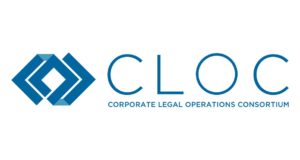CLOC 2018: Leveraging Data and Insights to Drive High Performance
 The Corporate Legal Operations Consortium, maybe better known as CLOC, has developed a list of Legal Operations Core Competencies. At the 2018 Annual Corporate Legal Operations Institute, a workshop focused on three of those core competencies: financial management; vendor management; and data analytics.
The Corporate Legal Operations Consortium, maybe better known as CLOC, has developed a list of Legal Operations Core Competencies. At the 2018 Annual Corporate Legal Operations Institute, a workshop focused on three of those core competencies: financial management; vendor management; and data analytics.
The workshop, Legal Ops Dashboard Workshop: Leveraging Data and Insights to Drive High Performance, looked at these three areas through the lens of the “modern legal department.” The modern legal department works to employ innovation, data and collaboration practices to drive improved business results, add value and change the perception of being solely a cost center. The 2018 State of the Corporate Law Departments report, published by Thomson Reuters, Acritas and CLOC, provides insights from their respective research highlighting trends, priorities and recommendations to become and continue to be a modern legal department.
Most legal departments have seen their legal spend grow and encompassing more work. This has stemmed from economic uncertainty, competitive pressure, increased board accountability, globalization and a rise in regulation which has required the ability to manage a more dynamic and complex legal landscape critically important.
The panel noted three themes that are key to a modern legal department, and they include:
- Fostering a culture of ongoing improvement and innovation
- Embedding data-driven review and decision making, and embracing metrics as a standard business practice
- Investing time and energy in business partner relationships with external law firms and vendors; working as one collaborative team to deliver better outcomes
Modern legal departments should align themselves to several goals. The first is safeguarding the organization by preventing issues by monitoring and mitigating risk. Driving efficiency is another key goal as modern legal departments are focused on working smarter and managing their expenses more effectively.
Third, a modern legal department is effective when there is true collaboration – going beyond the relationship of internal and external lawyers. There also needs to be a strong working relationship and respect with business partners within the organization, the department’s external partners and vendors to ensure success of technology implementation and effective service. And the fourth is to be socially responsible by considering ethical behaviors through sourcing, supporting diversity initiatives and promoting pro bono efforts.
But the big question is, how should a legal department stay modern and evolve?
The answer was to ensure that the legal department is measuring and reviewing their performance, look for ways to innovate, emulate successes of your peers, and increase budgets to procure (and use) technology to become more efficient
The panel closed with five key takeaways for the modern legal department to act upon which include:
- Collate and review metrics
- Evolve the size and make-up of the in-house team
- Continually review technology and innovation
- Drive supplier performance through business partner relationships and development of in-house skills
- Increase diversity
The workshop was presented by Lisa Hart Shepherd, chief executive officer, Acritas and myself. The panelists included: Clifford Barr, associate general counsel, Legal Operations, Andeavor; Natasha Dobrioglo, global legal operations manager, Nike Corporation; and Elizabeth Gonzalez, director, Operations Office of Legal Affairs, Norwell Health.
This post was written by Daniel Bodnar, director of Product Management, Thomson Reuters.